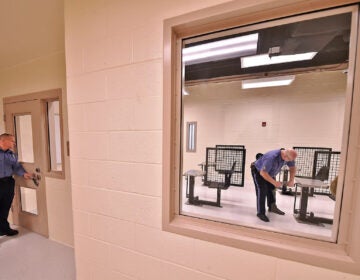Delaware first to outlaw marriage by minors. Is New Jersey next?
Supporters say the ban will protect young girls from being forced into marriage.
Listen 1:30
Delaware this week became the first state to ban marriages by minors, with no exceptions. New Jersey could be next. (photo/bigstockphoto.com)
Marriage by minors is frowned upon in most states, and many have laws banning the practice.
Until this week, however, legal loopholes allowed boys and girls under 18 to tie the knot in every state. Some states required permission of parents or a judge.
But Gov. John Carney’s signed a law Wednesday that prohibits anyone under 18 from getting married in Delaware, with no exceptions. The law’s enactment is the culmination of an effort that began more than a decade ago.
New Jersey is also pondering a ban, after lawmakers passed one last year only to have it vetoed by then-Gov. Chris Christie.
The push in Delaware began in 2007 when Ken Boulden, New Castle County’s clerk of the peace, became disgusted with seeing girls as young as 14 applying for licenses to marry men in their 20s.
“There were young girls coming with their parents signing for them because they were pregnant,’’ Boulden said.
“These girls were 14 years old and 15 years old and the men who were there to marry them as husbands were often in their early 20s, some 27 years old,” he said.
Boulden partnered with state lawmakers to seek a total ban on minors marrying. What passed instead was a compromise that allowed the practice, but only with a Family Court judge’s approval.
This year, though, state Rep. Kim Williams sponsored the bill that completed his quest, and completely outlawed the practice.
Williams explained that she sought the new law because “children under 18 have no legal standing – they cannot file for divorce, utilize a domestic violence shelter, apply for a loan or open a credit card. They cannot enter any legal contract, but, until this bill was signed, they could be married as a child without any way of escaping an abusive marriage.”
Supporters say the ban will protect young girls from being forced into marriage. What’s more, they said, marrying at an early age makes it more likely a girl will not finish high school; increases the chances she’ll live in poverty; and increases her risk of domestic abuse.
Opponents countered that the ban will prevent pregnant teens from getting married.
In Delaware, the House approved the measure 23-11 and it won unanimous passage in the Senate.
Boulden is delighted with Delaware’s decision.
“I’m just tickled to death. It’s me and my staff and people like me in the state and three counties on the front lines who saw this coming into our offices,’’ he said. “And it was so disturbing in so many different ways. On a personal level, on a moral level.”
But now, “if you want to be married and you are under 18 in the state of Delaware, you either need to be patient and wait or travel across our borders and go elsewhere.”
New Jersey lawmakers try again
In New Jersey, Assemblywoman Nancy Munzo, one of the sponsors of this year’s bill, said it would protect vulnerable teens.
Statistics show that those who enter into marriages at the young age face so many difficulties, Munzo said. “They have difficulty getting out of the marriage. They have difficulty with poverty going forward, with domestic abuse.”
But Marie Tasy, executive director of New Jersey Right To Life, is against the legislation. Like opponents in Delaware, she said it would prevent some pregnant teens from getting married.
“If this bill passes, a pregnant minor who wants to keep the child, parent the child, and marry the father will instead be forced into unwed motherhood, placing her child for adoption or abortion,” Tasy said.
Assemblyman Reed Gusciora, another sponsor, said that since 1995, more than 3,500 people under the age of 18 did get married in New Jersey.
“There’s probably success stories, but I’m sure that there are many that would regret that decision in years to come,’’ he said. “We want them to concentrate on school, concentrate on work, and concentrate on their future.”
The biggest advocate for the legislation is Fraidy Reiss, the founder of Unchained at Last, a group that helps women escape from forced marriages.
“If you can’t get into a domestic violence shelter, if you can’t file for divorce, if you can’t retain an attorney because contracts with children are voidable, how could you possibly be able to enter into a contract as serious as marriage before you have the legal capacity to safely negotiate such a serious contract?” Reiss said.
Phil Gregory contributed to this report.
WHYY is your source for fact-based, in-depth journalism and information. As a nonprofit organization, we rely on financial support from readers like you. Please give today.





